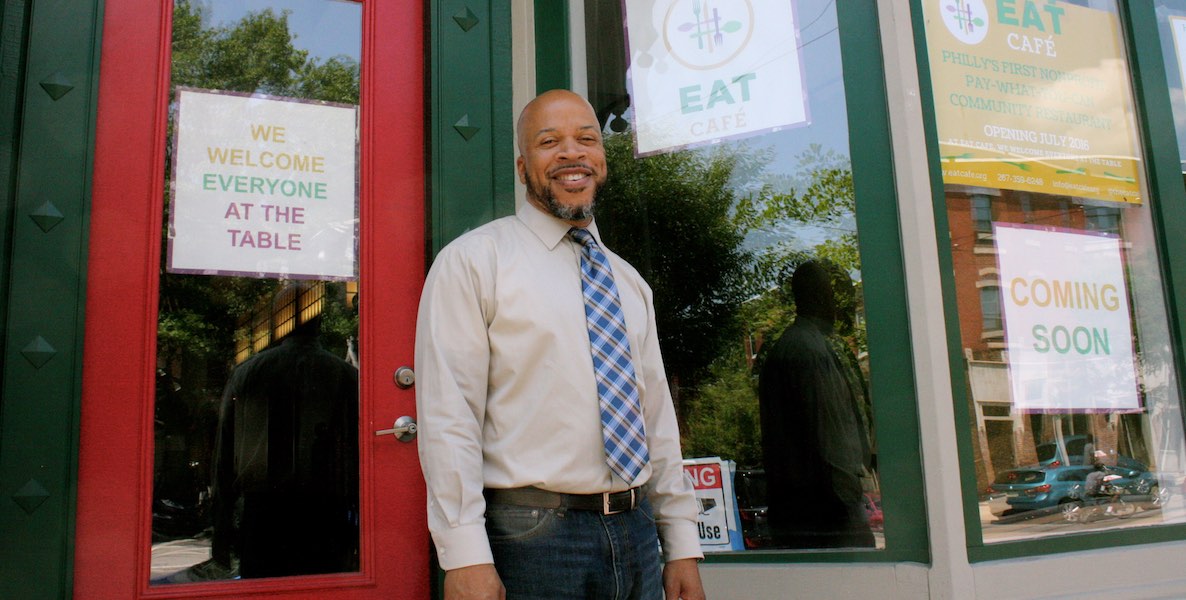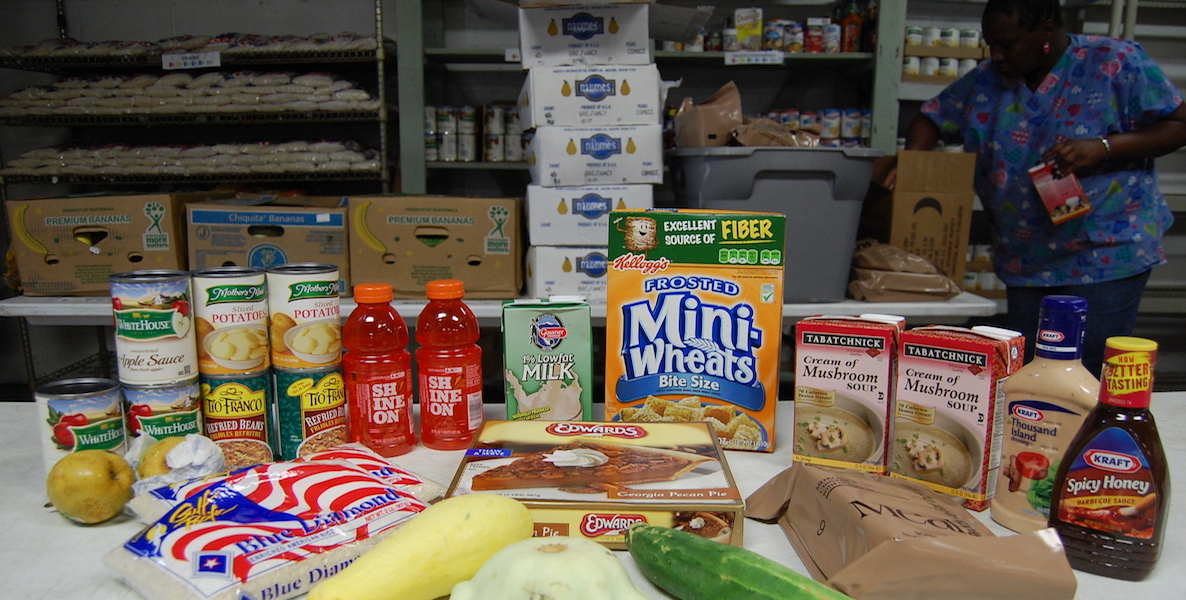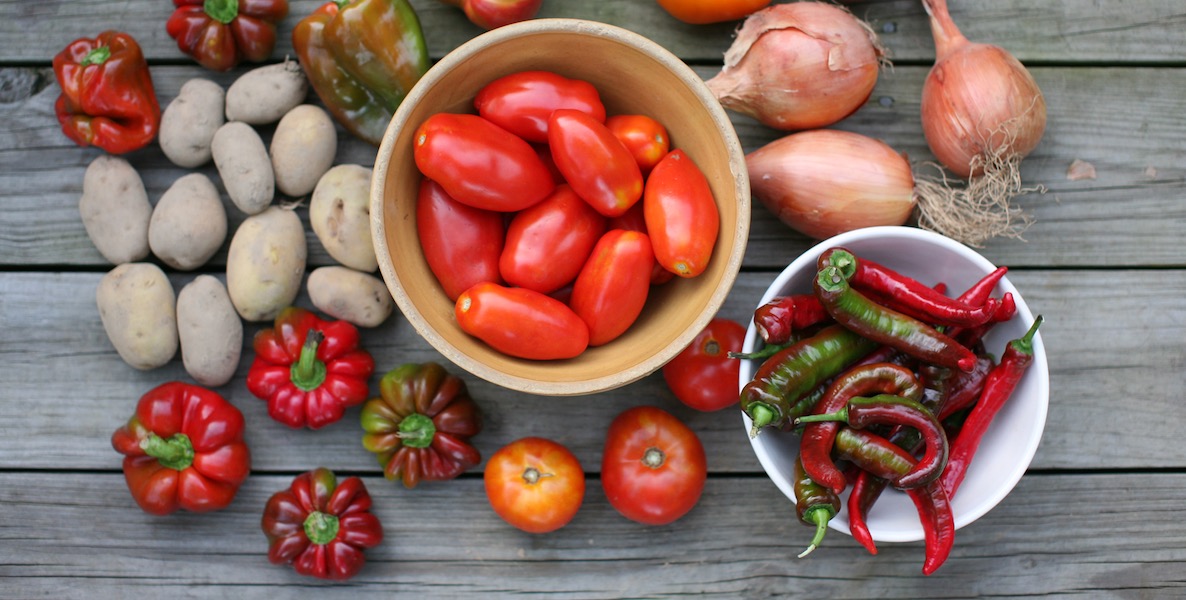Imagine this: On a two-acre plot of land, at the edge of Fairmount Park, sits a forest hearkening back to the days when nature—not people—ruled the planet. Fruit trees tower over berry shrubs, fruit-bearing vines creep upwards. Insects, birds, animals fill the spaces in between. And every day, scores of Philadelphians wander through, filling their arms with fresh produce to take home—all for free.
This is the vision of a group of Philadelphia food access advocates—and it’s not as crazy as it seems. In fact, there’s precedent in Seattle.
Beacon Food Forest, in Seattle’s Beacon Hill, will be the largest food forest on public land in the country when it is complete. So far, it occupies two acres of a seven-acre plot sitting above a covered reservoir in South Seattle; this summer, the mostly volunteers who maintain the forest will plant another two acres. The garden contains 420 different species of edibles, some native to Seattle, like rasberries, huckleberries and walnuts, and some a reflection of the surrounding communities of Chinese, Vietnamese, Somalians, Latinos and African Americans, like Chinese pepper trees, persimmons and figs. Everything grown at Beacon Forest is free to anyone and everyone who wants to pick it at anytime.
Muehlbauer says he is hopeful that the city will grant his group a couple of acres in Fairmount Park to launch a food forest. And it is conceivable that the city could help to fund Fair Amount Food Forest with revenue from the tax on sugary beverages, a portion of which is slated for public park improvement.
“The goal is to create community and awareness around a local food supply, what you can grow that you don’t get in grocery stores,” says Glenn Herlihy, the forest’s co-founder. “It’s social healing and land healing at the same time.”
Beacon Forest is an example of permaculture, which means it is self-sustaining and perennial. The idea came out of a permaculture workshop Herlihy took in 2009, when for his final project, he decided to design a dream farm on an undeveloped piece of land next to a large park in his neighborhood of Beacon Hill. He passed the class, and then took his idea to the community, where he found a willing group of residents who decided to make his dream a reality. In 2012, after securing permission from Seattle Public Utilities and $140,000, mostly from the city’s Department of Neighborhoods, Beacon Forest broke ground.
Five years later, Beacon has become a model of urban forestry that holds two principles steadfast: Remaining true to the land, and to the community it serves. “In a food forest, you’re looking for collaboration between the community, what you can grow and what’s available,” Herlihy says. The plantings utilize what ecoloigsts call the seven layers of a food forest—trees at the top, ground cover at the bottom with shrubs, pollinators, vines in between. Those plants then propagate naturally, and shift—where berry bushes used to be most prominent, the trees have now blocked the sun, and have started providing more of the fruit. The land is also becoming what Herlihy calls a “genetic food bank” for edible plants that are dying around the globe.
https://www.youtube.com/watch?v=nihe9UCkZ7U
All of it—the planting, the upkeep, the harvesting—depends on the community. Only a few workers, like construction managers and teachers, receive occasional stipends. The rest of the 80 or so regular planters are volunteers from all over the city. Meanwhile, the food grown is picked regularly by neighbors, and anyone else who travels to South Seattle. How many people have eaten from the garden is unclear since it is unmonitored, on public land, and free.
“There are people in the city who don’t know how to use a shovel, never planted a tree, but really want to,” Herlihy says. “They haven’t had that experience of being able to forage in a public area, and the joy of finding a bunch of berries that they’ve never had before, like a goji berry. It’s an amazing experience.”
Like so many projects of its kind, Beacon was made possible by several different factors: A dedicated group of volunteers; a city willing to work with them; and available public funding, partly as a result of a levy approved by voters to make improvements to Seattle’s many parks.
That’s what makes this such an optimal time for a group of Philly volunteers working to develop what they call Fair Amount Food Forest, a publicly accessible food forest in Fairmount Park. Formed a little over a year ago by Michael Muehlbauer, a landscaper, farmer, and builder who was a core Beacon Forest member when he lived in Seattle, the initiative is in the very early planning stages—talking to the city, forming partnerships with like-minded organizations, reaching out to neighborhoods that abut Fairmount Park to see who, if anyone, would want something like the Beacon Food Forest in their community.
Muehlbauer, a Wisconsin native who had an edible landscaping business in Seattle, says he realized about six months after moving to Philly that this city—vastly different from that on the west coast—could be ready for this. “The people I’ve met and consistent, random conversations made me think, ‘We needed you at Beacon,’” Muehlbauer says. Those people now form the core of his planning group. “I realized we could do this really well here, maybe even better than in Seattle.”
Beacon contains 420 different species of edibles, some native to Seattle, and some a reflection of the surrounding communities of Chinese, Vietnamese, Somalians, Latinos and African Americans. Everything grown at Beacon Forest is free to anyone and everyone who wants to pick it at anytime.
Muehlbauer says he is hopeful that the city will grant his group a couple of acres in Fairmount Park to launch a food forest. And it is conceivable that the city could help to fund it with revenue from the tax on sugary beverages, a portion of which is slated for public park improvement. Like Beacon in Seattle, though, the city has first asked them to find other community partners and to get neighborhood buy-in for the project. Fair Amount is spending the next few months talking to residents who would be most affected by a public forest. “We don’t want to create this somewhere if no one wants it,” Muehlbauer says.
If Fair Amount gets off (into) the ground it would take Philly’s urban gardening movement to a whole new level. First there were community gardens, often built on empty lots across the city. Then urban farming took off, led by Fishtown’s Greensgrow Farms, which opened in 1997. The Philly Orchard Project launched 10 years later, and has now planted nearly 60 tree and berry farms on empty lots throughout town, harvesting some 3,000 pounds of fruit a year. A public food forest would go even further: Native plants set on to grounds that are, always, open to the public, for anyone to reap as they see fit.
And unlike Seattle, a relatively wealthy city with little unused land, Philly is ripe for a food farming revolution: The city has some 40,000 vacant lots, acres of land that are mostly eyesores. It also, despite incredible efforts on the parts of several groups, still is home to several food deserts, neighborhoods in which it is difficult and expensive for residents to access fresh produce. And many of those residents are the ones most in need: The 26 percent in poverty, with the host of ailments that go along with the city’s worst and most unshakeable problem. Fair Amount would not solve all of these problems But it could be part of an environmental, social and nutritional answer to many of the issues the city faces.
Herlihy says that when they first proposed the idea of Beacon Forest, they were asked about how to handle people who might want to take, for example, every blueberry in the garden. But Herlihy says it hasn’t been an issue. Plants are scattered throughout the forest, so grabbing any of one species would be more complicated than simply walking in with a big box to fill. And, anyway, it wouldn’t be an issue.
“If they’re coming in and taking it all, that means there’s a demand,” Herlihy says. “It means there are people who are hungry and need it, and that we should be doing more. We need more abundance to serve the need. We’re here for everyone.”
Correction: An earlier version of this story misstated that Beacon is the largest sustainable farm on public land in the country. It will be the largest food forest when it covers the full seven acres; right now, it occupies two acres.
Header photo: Volunteer planters at Beacon Food Forest. Courtesy of Beacon.




